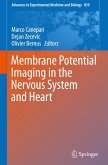Alzheimer's disease (AD) and many other neurodegenerative disorders are multifactorial in nature, involving a combination of genomic, epigenomic, network dynamic and environmental factors. A proper investigation requires new integrative Systems Biology approaches, at both the experimental and computational level. The interplay of disease mechanisms and homeostatic networks will underlie the time of onset and rate of progression of the disease.
This book addresses such an integrated approach to AD. It aims to present Systems Biology, including both experimental and computational approaches, as a new strategy for the study of AD and other multifactorial diseases, with the hope that the results will translate into more effective diagnosis and treatment, as well as improved public health policies.
Written for the highly successful Methods in Molecular Biology series, practical and cutting-edge, Systems Biology of Alzheimer's Disease is intended for post-graduate students, post-doctoral researchers and experts in different fields with an interest in comprehensive Systems Biology strategies applicable to AD and other complex multifactorial diseases (including other neurodegenerative diseases and cancers). This book aims to complement other excellent volumes and monographs on AD that cover fundamental, physiological or medical aspects of the disease.
This book addresses such an integrated approach to AD. It aims to present Systems Biology, including both experimental and computational approaches, as a new strategy for the study of AD and other multifactorial diseases, with the hope that the results will translate into more effective diagnosis and treatment, as well as improved public health policies.
Written for the highly successful Methods in Molecular Biology series, practical and cutting-edge, Systems Biology of Alzheimer's Disease is intended for post-graduate students, post-doctoral researchers and experts in different fields with an interest in comprehensive Systems Biology strategies applicable to AD and other complex multifactorial diseases (including other neurodegenerative diseases and cancers). This book aims to complement other excellent volumes and monographs on AD that cover fundamental, physiological or medical aspects of the disease.
"The book represents a very useful introduction to Systems Biology as the approach necessary to obtain a global view of the dysregulation of pathways involved in AD. In the need for standardization of techniques, the methods described in this book provide a step forward in the definition of common guidelines leading to the reproducible and dependable results necessary for a better understanding of the pathophysiology of AD." (Dr. Alessandro Villa, Journal of Alzheimer's Disease, Vol. 50, 2016)








